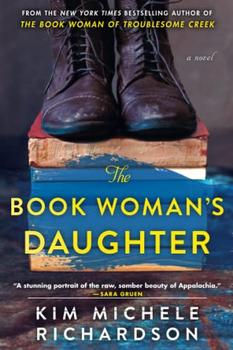Book Club Discussion Questions
In a book club? Subscribe to our Book Club Newsletter and get our best book club books of 2025!
For supplemental discussion material see our Beyond the Book article, Moonlight Schools and our BookBrowse Review of The Book Woman's Daughter.
Please be aware that this discussion guide will contain spoilers!
- Discuss the types of circumstances in which a child, or parent, would ask for a Declaration of Emancipation. Thinking about emancipation and the LeAnn Rimes/Britney Spears issues where the child is earning huge dollars that the parent "manager" is squandering or keeping from the child improperly, what should be put in place to prevent this?
- Children, especially rural children, were a valuable commodity to families who needed farm labor without having to pay wages. Society continues to be mostly patriarchal, and during the time in which this novel was set, it was the father who could "express" emancipation and consent to his child's emancipation. Discuss patriarchal laws and the role they have played, and continue to play, in shaping women and children's rights and lives.
- Does prison labor for children still exist like the historical House of Reform in Kentucky? Do children have to work in juvenile facilities as they once did? Should they have to?
- Dogs are well-known for their protective instincts, but in this book, Junia the mule and Tommie the rooster protect Honey and Wrenna. What other animals have been known to protect their people?
- Honey's interactions with a far more sophisticated Pearl show a glimpse into innocence and youth, the old land waking up to modernism creeping in, and the mountainfolk caught between their old hard ways and the new advanced world. Though Honey has been well educated by Book Woman Cussy in writing, reading, and more, her isolated life has held her back in other ways. Honey's new friend Pearl is far ahead of her with modern gadgets, young men, parties, and drinking. Discuss their differences, the women's strengths and vulnerabilities, and their adjustments to new environments.
- Discuss the different jobs Honey, Pearl, Bonnie, and Amara held. What were the dangers they faced? What are unusual jobs women hold today versus years ago?
- Discuss book banning of long ago and today.
- Honey's mother, Cussy Mary Lovett, is subjected to forced sterilization while imprisoned for violating Kentucky's anti-miscegenation laws. The American eugenics movement led to this and other atrocities against individuals who were seen as different, including minorities and people with disabilities. Discuss why it is important to remind ourselves of the role eugenics played in America's not-sodistant past.
- Child marriages are a global problem that can lead to dangerous and devastating consequences. In America, the marriageable age is determined by states. Many still allow child marriages between the ages of fourteen to seventeen with parental or judicial consent. There are some cases where children have married at age twelve and younger. What are the dangers of being a child bride or groom?
- Choose a character from the novel and imagine what their future would hold.
- Honey is surprised to find out that Loretta Adams had attended one of Kentucky's Moonlight Schools, which served the uneducated and the elderly. What do you think it would have been like to learn or teach at a Moonlight School?
- Laws banning interracial marriage in America were first passed in the seventeenth century. They were enacted in many states until they were declared unconstitutional by the U.S. Supreme Court in 1967. Alabama became the last state to remove laws banning interracial marriage from its statutes in the year 2000. Do you know what antimiscegenation laws your state passed and when they were abolished? Discuss what the history of these laws can tell us about race and marriage in America, both then and now.
- How do you think Honey, Cussy, and Jackson's lives would unfold over the next two decades? What relevant laws will change, if any?
- If you were to craft a scrapbook for isolated people, as the Pack Horse librarians did long ago, what would you include?
- What are popular and favorite recipes of your family and region, and how do they differ or stand out from other families and places?
- Do you think Honey purposely selected books from her personal collection to empower her women patrons? What books would you select to empower the underserved or disadvantaged in your area, and why?
Download full book club kit
Unless otherwise stated, this discussion guide is reprinted with the permission of Sourcebooks.
Any page references refer to a USA edition of the book, usually the trade paperback version, and may vary in other editions.
